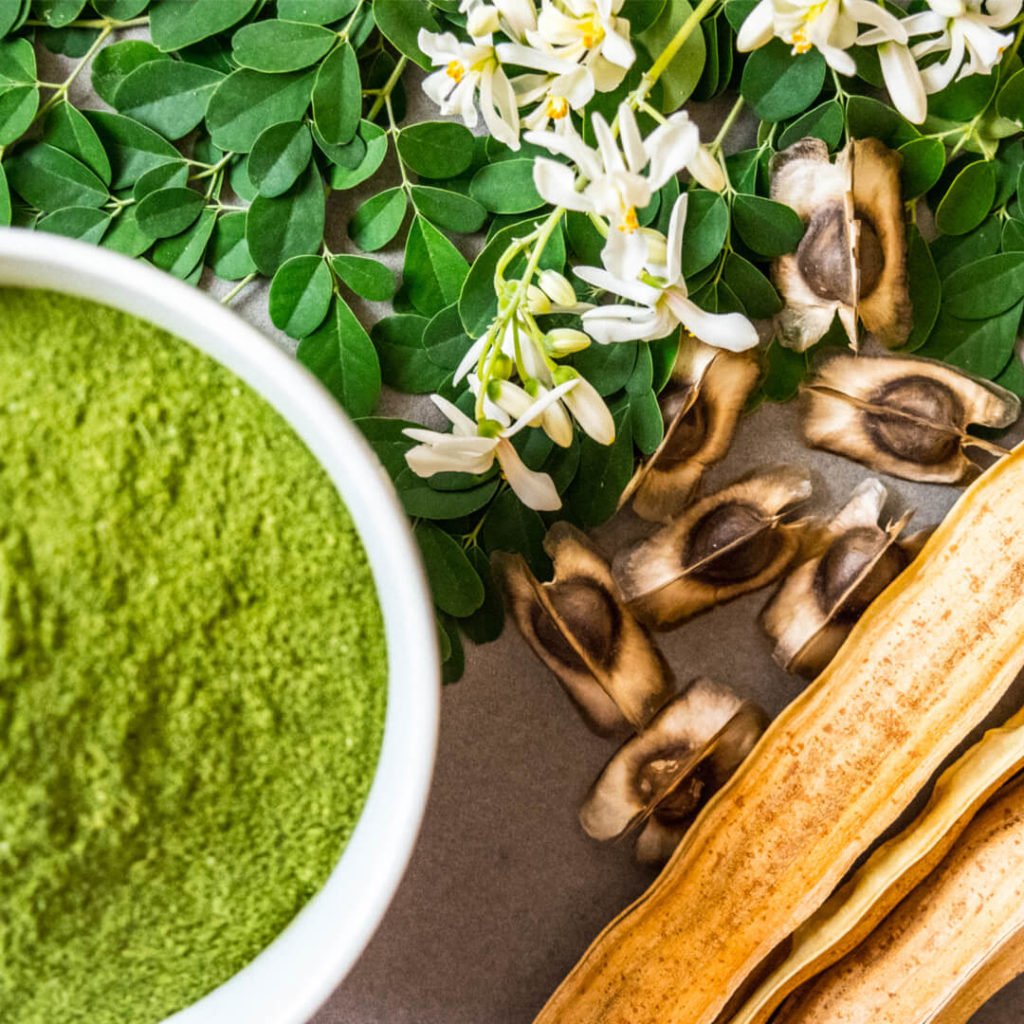In the vast repertoire of nature’s bounty, certain plants stand out for their multifaceted benefits and profound impact on human health and sustainability. One such remarkable plant is the Moringa tree, often hailed as the “Miracle Tree” or “Drumstick Tree.” Native to the Indian subcontinent, the Moringa oleifera has spread across many parts of the tropics and subtropics. Celebrated for its nutritional value, medicinal properties, and environmental benefits, Moringa is a cornerstone in the fight against malnutrition, disease, and environmental degradation.
Nutritional Powerhouse
Moringa is extraordinarily rich in vitamins, minerals, and amino acids. It contains significant amounts of vitamin A, C, and E; calcium; potassium; and protein. The leaves, arguably the most nutrient-dense part of the plant, are commonly consumed in powder form, added to recipes or smoothies for a nutritional boost. Remarkably, Moringa leaves have more vitamin C than oranges, more potassium than bananas, and more calcium than milk on a weight-for-weight basis. This makes Moringa an invaluable resource in regions where diets lack sufficient nutrients.
Protein Content and Amino Acids
One of the unique aspects of Moringa is its high-quality protein content, which includes all nine essential amino acids, making it a rare plant-based source of complete protein. This is particularly important for vegetarians and vegans who may struggle to obtain a full spectrum of amino acids from a single plant source.
Medicinal Benefits
Traditionally used in various folk medicine systems, including Ayurveda, Moringa has been studied for its potential in modern medicine. Its leaves, bark, flowers, fruit, seeds, and root are used to treat a myriad of diseases, such as diabetes, hypertension, inflammation, and infections, as well as gastrointestinal, cardiovascular, and liver issues.
Antioxidant Properties
Moringa is rich in antioxidants, such as quercetin, chlorogenic acid, and beta-carotene, which combat free radicals, molecules that cause oxidative stress, cell damage, and inflammation. Antioxidants are critical in reducing oxidative stress associated with chronic diseases like heart disease and type 2 diabetes.
Anti-inflammatory Effects
The anti-inflammatory properties of Moringa are formidable. Chronic inflammation can lead to severe health issues, including heart disease, cancer, and autoimmune diseases. Moringa’s isothiocyanates are known to be effective in reducing inflammation, offering potential preventive and therapeutic benefits.
Environmental Impact and Agricultural Uses
Moringa not only benefits human health but also the environment. It grows quickly, even in poor soil conditions, making it a robust candidate for reforestation and afforestation projects. Its ability to grow with minimal water makes it particularly suitable for arid climates, combating desertification.
Water Purification
One of the most impactful environmental uses of Moringa is water purification. Seeds from the Moringa tree can be used to clarify and purify drinking water. They work as a natural flocculant, coagulating contaminants and sediment, which settle to the bottom, making the water cleaner. This method is a low-cost, sustainable alternative to conventional chemicals and is especially useful in developing countries.

Sustainability
The Moringa tree is a model of sustainability. Every part of the tree is usable – for food, medicinal purposes, or industrial products. The seeds produce oil known as Ben oil, used in cosmetics and lubrication. The leftover seed cake from oil extraction acts as a fertilizer and can even be used for water purification. Furthermore, the rapid growth and minimal requirement of the Moringa tree make it a viable option for carbon sequestration, contributing to the mitigation of global warming.
Socioeconomic Benefits
The cultivation of Moringa can also drive socioeconomic growth. It offers a source of income for rural communities through local and international markets. Moringa products, such as leaf powder, capsules, tea, and oil, have a growing demand in the global health food market.
Community Health
In many developing countries, Moringa is promoted for its ability to help alleviate malnutrition and secure food supplies in vulnerable populations. Its rapid growth rate and high-nutrient content make it an excellent supplement during food shortages.
Future Potential
Scientific research continues to explore the full potential of the Moringa tree. Its role in treating or managing disease and its use in sustainable agriculture practices present promising opportunities. With climate change and food insecurity as critical global challenges, Moringa’s role in environmental sustainability and health can play a part in the solution.
Conclusion
The Moringa tree is indeed a miracle of nature, embodying a unique blend of nutritional, medicinal, and environmental benefits. Its role in traditional and modern medicine, coupled with its ability to thrive in harsh conditions, makes it a critical player in sustainable development. As more research sheds light on its varied benefits, Moringa is set to become even more integral to dietary supplements, natural health products, and ecological health strategies. In embracing Moringa, the global community has much to gain from this remarkable tree.
Ajigofarms is a reliable global agricultural purchase sourcing with profound expertise in the manufacturing, and exportation of food crops. We are tested, and trusted suppliers of all kinds of cash crops and food crops. Our constant supply chain solution makes exporting easy, quick, and safe, we are identified with timeliness and meeting up with deadlines. Regardless of the region you are located in worldwide, you can reliably order your Agric products and be rest assured of successful delivery.




